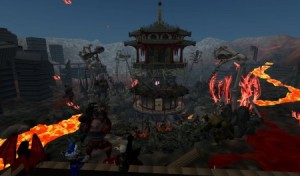Where does the intuitive knowledge come from? I can maybe use the recent findings about my disability. My prefrontal cortex is impaired, not totally broken, but not fully functional. Sort of absorbed by other parts of the brain.
In the case of neurotypical people, when you dream your sensory center, your emotional center, and your memory center all turn on and go into hyper drive, but your “reality checking” or thinking center stays turned off. For me, that is to a degree constantly turned off. Now your conscious waking world activity screens and sends messages to these other centers of your brain. Thus you dream about things you did that day or feelings you have about the upcoming day.
Are you the type that doesn’t need to know how a computer works. You just want it to work. To have it explained in detail kind of makes your brain switch off? I actually am not that type. But yes, having it explained in detail does switch off my brain.
My mind processes other peoples thinking very poorly. My forebrain, which is the rapid switchboard part of your mind, doesn’t relay information well, so I can’t keep up with other peoples thinking or form clear pictures of it. It’s just a blur. But my mind instead registers my sensation like yours would register mind states. I don’t have a natural theory of mind, but I do have a theory of the physical, and I intuitively interpret things in my environment very well.
Now what my brain does normally your brains does also, but it’s subconscious. It’s like the synesthesia phenomenon. They have discovered that is actually normal, but most people can’t process it yet.
What is synesthesia? When things like shapes have a taste, or numbers a color, sounds have texture. Things like that.
That must impact your ethics? It does. My attitudes reflect a minimalist view of the world. For me, everything is to some degree overwhelming so it compromises my capacity for empathy. When people report that something hurts or is scary, I don’t process it well other than to know they need to slow down or disconnect.
I find when I am stressed, I have less empathy as well. Yes, my supposedly strange reaction is not abnormal. It’s just its pervasive quality that people see as strange, and it has shaped even my reflexive attitudes, my intuitive understandings.

There was a location here in Second Life. It was a model of the Japanese view of hell, Jigoku. I have seen modern renditions of this in art pieces and such, but they have been reflecting these more clearly for a much longer time. I find I understood that scene best and was most comfortable in it. Even socially relating to other people seems to me like watching a horror movie, predictable and formulaic, but also logical, and though some people would call me morbid, it defines my style of thought. This is why I mostly keep it quite. I have a high tolerance for fear, but few other people do.
Is it like you have seen all the patterns and now just see them repeating over and over? Yes, but I do find glitches, pockets. My whole style of understanding is intuitive pattern recognition.
Shifts? I have seen shifting trends as well, but even outside of the dynamic there are some few individuals whose ethical center is stronger than normal. They sort of shed a strange light into the pattern, make everything else stand out even more by contrast. I can’t anticipate their impact very well. There is still the human thinking thing, but sometimes they do join forces, and then those alliances create greater changes. Little islands in the greater pattern.
Shift in consciousness? Yes. Every once in a while I see a normal person come away from these contacts, and though they don’t really understand it, the contact stays in their memory and effect them from then on.
What sort of people have a stronger ethical pattern? The people who have the stronger ethical pattern seem to be those who have a strong survival instinct. Usually exceptionally sensitive people. They can’t usually accept static codes of belief, but do sometimes fall into a broad family of belief often as an example of a role model to those who hold the more static view. These people experience fewer paradigm shifts as their growth patterns are generally never far off center. Even before they have words for their beliefs, they have an intuitive recognition of it.
Ah, but the paradigm shift is the fun part. Indeed, and they do often help precipitate shifts. The still point in the rolling wheel. People think of them as empty of spirituality, because they tend to avoid extremism. Except in extreme situations of course, that’s when they become revolutionaries.
Where do these people’s ethics originate from? Their ethics originate from what Taoists call the te. Innate virtue. They may have rigid beliefs for a time, but they will fall back to their nature sooner or later. Te is symbolized by a paradoxical symbol. The uncarved block. The value of a thing by itself, before intervention, before struggling. What it does when it isn’t trying to do anything at all.
Your thoughts are welcome. Be well friends.
Travis Saunders
Dragon Intuitive
~science,mysticism,spirituality~



Leave a Reply